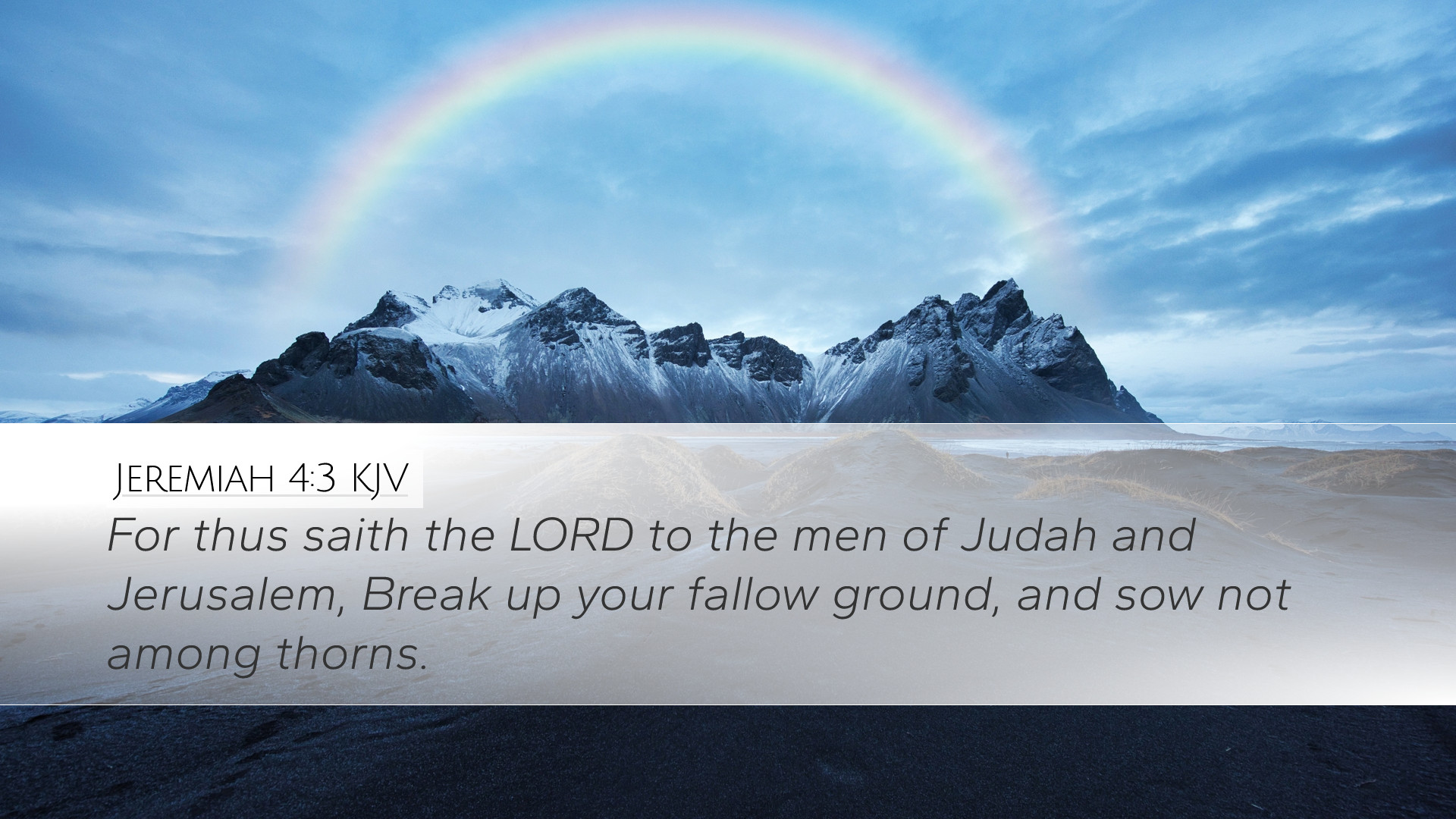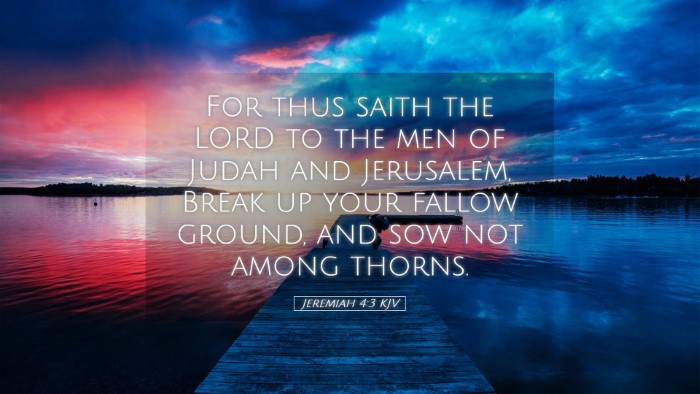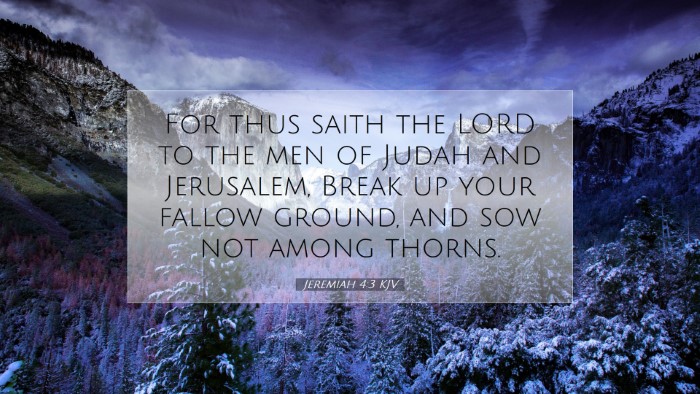Commentary on Jeremiah 4:3
Verse: “For thus says the Lord to the men of Judah and Jerusalem: Break up your fallow ground, and do not sow among thorns.” - Jeremiah 4:3 (ESV)
Introduction
This verse from the prophet Jeremiah serves as a powerful invitation to the people of Judah and Jerusalem to engage in spiritual renewal and preparation. The metaphor of breaking up fallow ground suggests the need for repentance and a turning away from sin in order to prepare for the reception of God’s word. Not only does this appeal capture the agricultural practices of ancient Israel, but it also conveys profound spiritual truths essential for a deeper understanding of God’s expectations for His people.
Exegesis and Context
Jeremiah, known as the "weeping prophet," proclaims messages of warning, lament, and hope. The historical backdrop of his ministry includes the impending judgment upon Judah due to their persistent disobedience and idolatry. Here, Jeremiah calls for a radical transformation that aligns with God’s redemptive plan.
Call for Repentance
Matthew Henry notes that the term “fallow ground” refers to land that has been neglected and left unattended for a time. He emphasizes that this represents the spiritual condition of the people, who have allowed their hearts to become hardened and unproductive. To “break up” this fallow ground is to disrupt that complacency, initiating a necessary process of repentance, which is paramount for receiving God’s blessings.
A Symbol of Spiritual Renewal
Albert Barnes expounds on this imagery, observing that breaking up the soil illustrates the need for preparation and cultivation in the hearts of believers. The audience in Judah is reminded not only to clear the obstacles in their lives, symbolized by “thorns,” but also to actively pursue spiritual growth by sowing the seeds of God’s word in rich, well-tended soil. Such preparation is essential for a fruitful spiritual existence.
The Danger of Neglect
Adam Clarke underscores the urgency in this call. The metaphor of sowing among thorns serves as a warning against intertwining spiritual pursuits with worldly distractions. Clarke indicates that compromising with sin leads to spiritual barrenness and fruitlessness, urging the people to be diligent in maintaining the purity of their devotion to God.
Theological Insights
This verse encapsulates several theological themes that resonate through the Scriptures:
- God's Desire for Action: The command to break up the fallow ground illustrates God’s initiative in desiring a relationship with His people, inviting them to take the first step toward renewal.
- The Necessity of Repentance: The imagery emphasizes that repentance is not merely a one-time act but an ongoing process that involves examination, confession, and turning away from sin.
- Preparation for Renewal: Just as the soil must be prepared for planting, so must the hearts of the people be softened to receive the truth of God’s word.
Practical Applications for Today
As pastors, students, and theologians reflect on Jeremiah 4:3, several key applications emerge:
- Self-Examination: Just as Jeremiah called the people to assess their spiritual condition, contemporary believers are encouraged to engage in regular self-examination and prayerful reflection on their relationship with God.
- Community Engagement: The call to action extends not just on an individual level but also within congregations, urging churches to foster environments where spiritual growth is prioritized over worldly distractions.
- Prophetic Voice: The message is timeless—a reminder that God’s word often challenges comfort zones and calls for bold steps of faith, requiring leaders to be prophetic in their teaching and guiding of the flock.
Conclusion
Jeremiah 4:3 resonates as a poignant exhortation to embrace spiritual renewal through active repentance and cultivation of one’s inner life. The fusion of agricultural imagery with profound theological implications challenges believers to reflect on their preparedness to receive God’s work in their lives. The wisdom gleaned from commentaries encourages a deeper engagement with Scripture, fostering a culture of readiness, transformation, and fruitful living in response to God’s grace.


